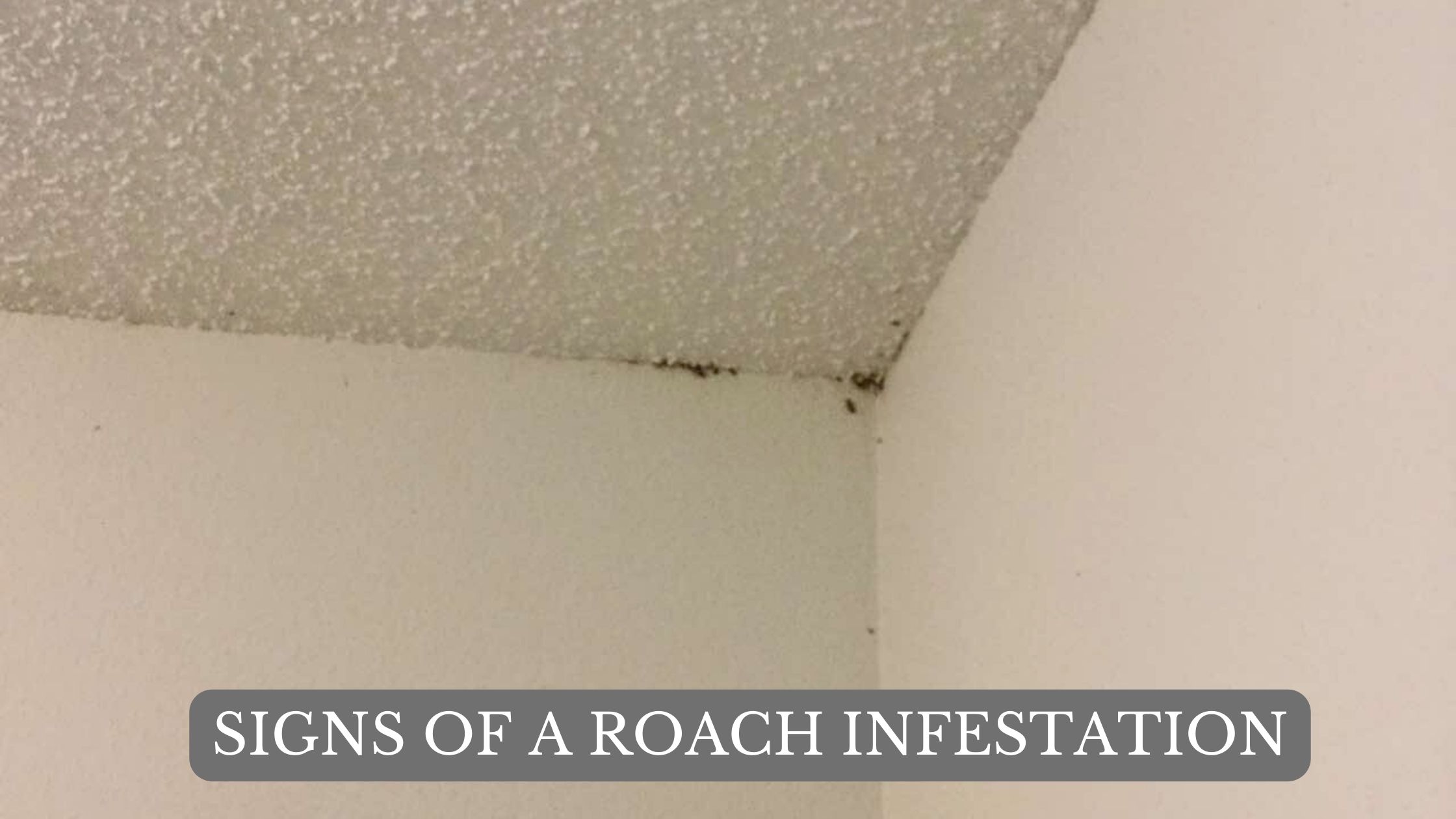Roaches are particularly troublesome for Pensacola, Florida area residents every spring and summer. With intense heat and too much rain, roaches will find their way inside your home for food and shelter.
Typically, we think of two types of roaches locally: the big ones and the little ones. Large roaches, called palmetto bugs, tend to come in occasionally and are less worrisome. Small roaches, like German cockroaches, tend to cause infestations and need treatment immediately if spotted inside. If you see a few small roaches, you can bet that there are more inside your home. German roaches are nocturnal, hiding in the day and coming out at night, therefore it can be hard to know this problem is occurring in your home when it first begins. I had my first run in with a roach infestation earlier this year and wanted to give others advice on how we solved our roach problem. First, how do you know if you have a roach issue?

Signs of a cockroach infestation include:
- Live roaches, often only seen at night or if a worse infestation is occurring, other times of the day.
- Black dots or roach droppings inside cabinets, around cabinet hinges, appliances, above door frames, and in the corners of walls.
- Roach skins
If you go to bed early, you may not notice live bugs in the house. If you suspect you may have some roaches living inside, I recommend setting an alarm in the middle of the night to look around. Make sure it’s good and dark as roaches prefer this. Then, turn on a light in your kitchen to see if you can find any bugs.
The most common area we see a roach problem begin is in your kitchen. Roaches love to make nests in your kitchen where they can easily access food sources. This is why it’s key to put any food up overnight and leave your sink clean and free of any debris. According to our pest professionals, they tend to congregate near appliances because they offer both a heat and humidity source.
How to cure your roach problem:
- Do a deep clean of your kitchen. Remove any grease build up or food debris.
- Pull out your appliances including your fridge, microwave, toaster oven, stove and even your dishwasher. Clean inside and outside of all of your appliances and don’t neglect the oven drawer, dishwasher filter and outer edge of your dishwasher door.
- Clean out your pantry and throw out any open food. Make sure food is properly packaged and secured.
- Clean out areas where food particles commonly fall like under your couch and cushions and sweep and mop all floors.
- Bathrooms are another common area for roach infestations. Clean them also and be sure to check under sinks and behind plumbing fixtures for any moisture.
Use roach spray, roach baits and/ or sticky traps. Be careful not to apply it near food and to clean any surfaces food will touch after treatment. We bought the over-the-counter roach spray that says it protects for up to 3 months. We sprayed it around the edges of cabinets and behind all of our appliances once they were pulled out and deep cleaned.
- Make sure to treat all areas you see roaches.
- Be sure you don’t have any water leaks behind appliances or under your sink.
- Don’t keep paper bags or cardboard boxes.
- Close up any entry access points from outside like gaps under doors or holes around plumbing or other fixtures.
- Treat around exterior doors and don’t forget to treat the yard.
If you leave roaches untreated, especially in Florida, they will cause an infestation. Cockroaches can carry bacteria and disease. It’s important to take treating them seriously. German cockroaches reproduce more than any other cockroach, with just one roach laying an average of 32 eggs.
Keep in mind that one treatment may not be enough. You may need to enlist the help of a professional pest control company to treat your roach problem. Many Pensacola residents opt for quarterly pest control services to help prevent common pest issues like roaches, fleas, ants, and spiders.


